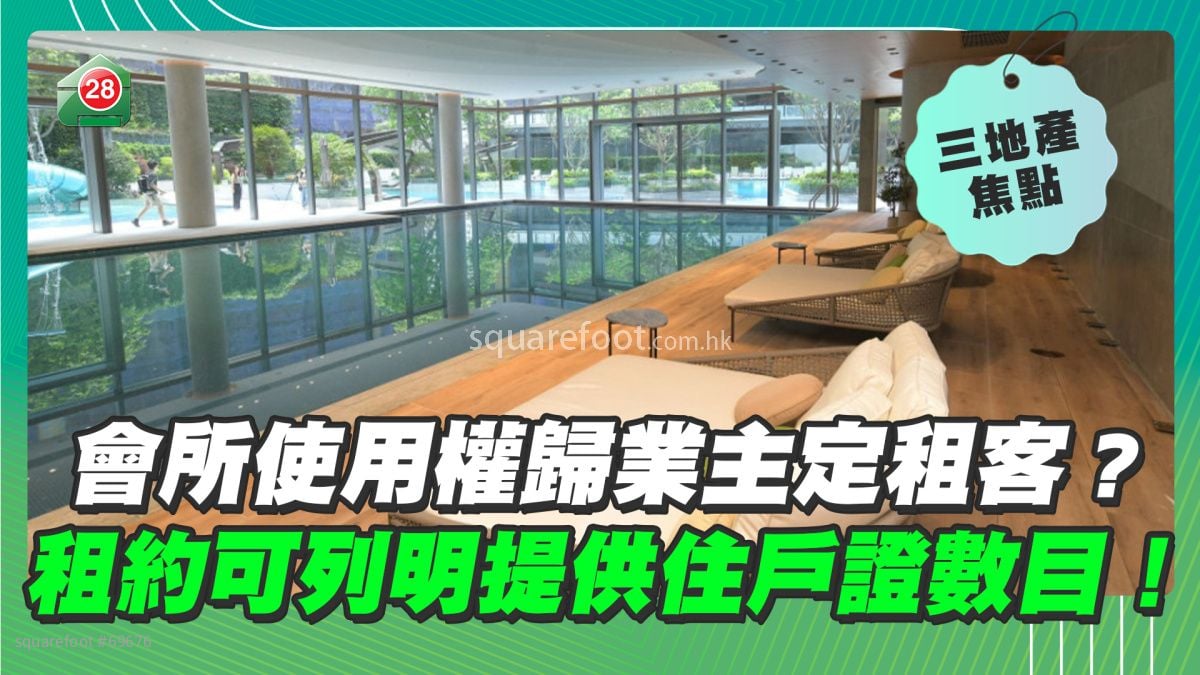- Home
- News
- Expert Blog
- Wed Property Focus
- Can Landlords Use Clubhouse Facilities After Renting Out Their Units?
Whether buying or renting a property, many people prioritise estates with clubhouse facilities such as swimming pools, gyms, and sports courts to meet the diverse needs of residents. For families with children, these facilities also provide a space for kids to expend their energy.
But when renting a property, who gets access to these clubhouse facilities—the landlord or the tenant? Generally, landlords receive 4 to 5 resident cards from the management office, depending on the size of the unit. However, landlords usually don’t pass all the resident cards to the tenant after renting out the unit. This means that both landlords and tenants can use the clubhouse facilities as long as they have a resident card.
It’s important to note that having a resident card doesn’t necessarily mean free access to all clubhouse facilities. In many estates, gyms, swimming pools, and other amenities charge a fee per use, which can add up over time.
If a landlord rents out the unit but keeps a few resident cards for personal use, is that “fair”? Legally, there’s no issue here. Ultimately, the landlord has the right to decide who can use the clubhouse facilities, as long as the number of users doesn’t exceed the limit set by the estate. Landlords can add or remove users at any time.
If you’re renting a unit in an estate with clubhouse facilities, make sure to check your lease agreement to see if it specifies whether tenants can use those facilities and under what conditions. If you need a specific number of resident cards, discuss this with the landlord and ensure the agreed number is clearly stated in the lease.
Some people who live in buildings without a clubhouse may post on forums or second-hand marketplaces looking to rent resident cards from other estates to gain access to facilities like swimming pools or gyms. But is it feasible for residents to rent out their cards to non-residents?
This practice exists in a legal grey area but comes with significant risks. If the person renting the card causes damage or engages in illegal activities, the original cardholder may be held responsible. However, how such situations are handled depends on the policies of individual estates.
Some estates require residents to present their resident cards to enter the building; otherwise, they must register their details. In cases where tenants fail to pay rent or become problematic, can landlords request the management office to cancel the tenant’s resident cards, thereby restricting their access to the clubhouse or the building to pressure them into paying rent?
No, that is illegal. Under the Landlord and Tenant (Consolidation) Ordinance, it is a criminal offence to evict tenants or subtenants without a court order, or to harass them through threats, violence, or by cutting off essential services such as water, electricity, or gas. Any such actions aimed at forcing tenants to vacate the property are strictly prohibited.
Like
| Property Type | Price | Ads Period |
|---|---|---|
| For Sale Property | ||
Normal Listing Typical One | HKD:1000 (or Hsemoney:1000) | Valid:90 days |
Golden Top Listing Higher position than Top listing 2-3times better performance | HKD:3000 (or Hsemoney:3000) | Valid:60 days |
| Rental Property | ||
Normal Listing Typical One | HKD:1000 (or Hsemoney:1000) | Valid:80 days |
Golden Top Listing Higher position than Top listing 2-3times better performance | HKD:3000 (or Hsemoney:3000) | Valid:60 days |
